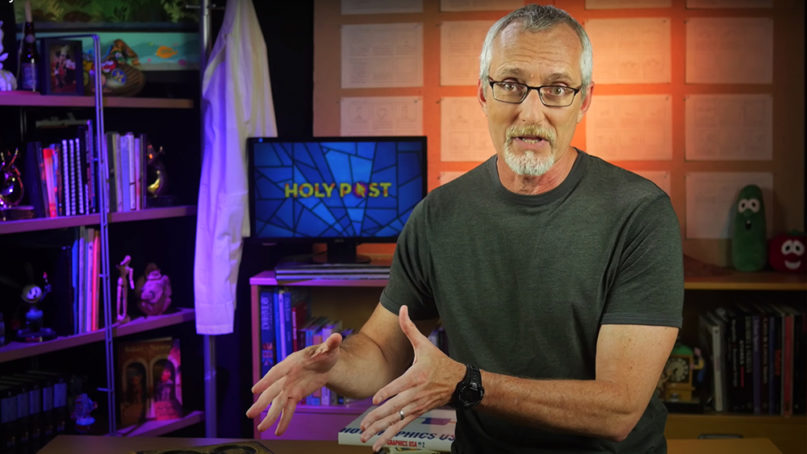(RNS) — Bob the Tomato wants you to care about racism.
Earlier this week, Phil Vischer — creator of “VeggieTales” and voice of Bob the Tomato in the popular Christian animated series — posted a now viral video called “Race in America” that attempts to answer the question: “Why are people so angry?”
Filled with graphics, photo montages and factoids— and a few comic asides — that make the concept of systemic racism accessible for all ages, the 17-minute tutorial had garnered more than 2.8 million views by Friday (June 19).
“The average Black household has one-tenth the wealth of the average white household,” Vischer said in the video. “This didn’t happen by accident. It happened by policy.”
In an interview with Religion News Service, Vischer said he designed the video to reach “white Christian America that wants to know what’s going on but just doesn’t have time or easy access to the data.”
Beginning with the end of the Civil War, Vischer enumerates in the video the damage segregation, discrimination and law enforcement have done to Black lives and Black wealth in the United States, intentionally and collaterally.
Citing the government’s increased spending on prisons and policing equipment over the past 30 years, Vischer said in the video, “As a result, a white boy born in America today has a 1 in 23 chance of going to prison in his lifetime. For a Black boy, it’s 1 in 4.”
Vischer said he made the video — which is part of “Holy Post,” the name of his 9-year-old podcast with pastor and author Skye Jethani — to reach white Christians, hoping to change their attitudes about racial injustice. He said he has been delighted, though not surprised, to find that the video has also reached what he called the “great middle … those whose values are represented neither by Fox New nor MSNBC.”
“My own family is diverse enough in belief, not in faith, but politically,” he said. “I thought, if I could make this work for my whole family, it probably would work for just about anybody.”
Vischer, who described his upbringing in mostly white environments as “sheltered,” said he began listening to Black, Asian and Latinx experiences when his white church merged with a second-generation Asian immigrant congregation about eight years ago. As the congregation doubled in size and became increasingly diverse, members of his congregation told their stories of being on the receiving end of racism.
Currently owned by NBC Universal, which has partnered with Trinity Broadcast Network to produce new episodes, the franchise has sold more than 65 million “VeggieTales” videos. Vischer continues to help write the episodes, and in addition to voicing 10 of the show’s main characters he is developing a script for a “VeggieTales” film, which would be the third film starring his garden variety movie stars.





